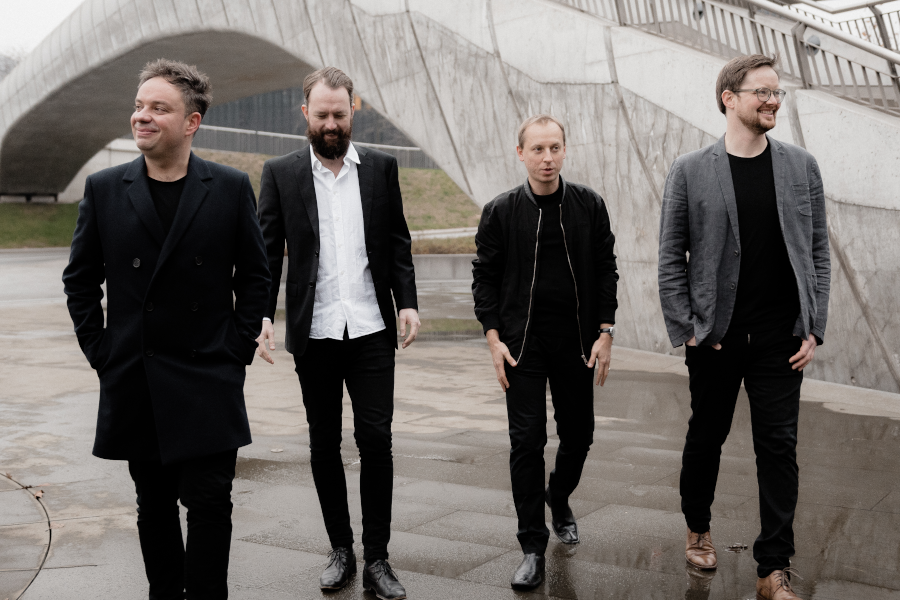The past decade has been marked by a refreshment of the jazz scene around the world. The new generation of musicians have effected a real renaissance of the genre, once again taking it from the underground to the mainstream and gaining the interest of new audiences.
The artists of the Wrocław-based EABS band have been working on the concept of "reconstruction from deconstruction" since 2012, often redefining the classics from several decades ago, colliding them with the latest genres of contemporary urban music, creating a completely new quality and original sound. Many will say that it is no longer jazz, but sometimes you have to raze something down to build something completely new on old foundations. Tomasz Stańko’s Purple Sun album resonated with the band for a long time. The musicians did not want to copy the Stańko’s achievements, but to feel into the state of mind of those times, when Polish jazz or big beat entered the experimental avant-garde, and the composers did not shy away from blending Polish folklore not only into the music, but also into the way of being and thinking. First, they focused on their own music, but a few years passed and EABS decided without hesitation to play the entire Purple Sun album.
In the second part of the concert, the Maciej Obara Quartet perform. Undoubtedly, this is a one-of-a-kind band that creates multi-layered music. The intense sound of Obara’s alto saxophone, oscillating between lyricism and explosiveness, is offset by Dominik Wania, a pianist with excellent technique and classical education. Both artists were described by John Fordham of The Guardian as “improvisers with cosmic energy”. From their first meeting in Tomasz Stańko’s band, it was clear that the impulsive and open-minded saxophonist and the introverted and analytical pianist would share a deep musical understanding. The rhythm section of the quartet consists of Norwegian musicians – double bass player Ole Morten Vågan and drummer Gard Nilssen. The artists will present songs from their latest album Frozen Silence. The material was inspired by the time spent in the Karkonosze Mountains and the exceptional state of disconnection from everyday life and civilisation, the momentum of which literally froze during the pandemic. The new music is a kind of contemplation of raw nature devoid of human presence. It was composed in a short time, over the course of a few weeks, so it is coherent. The pieces are more elaborate and have a more defined form, but still remain open enough that improvisers can freely decide what direction and sound they want to give them. The recording session took place in June 2022 at Rainbow Studio in Oslo. This is probably the most mature album, both in terms of the concept of writing for an acoustic quartet, as well as striking a successful balance between studio work and the live performance of Obara’s quartet.

